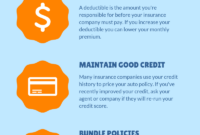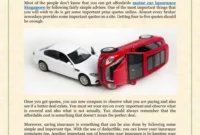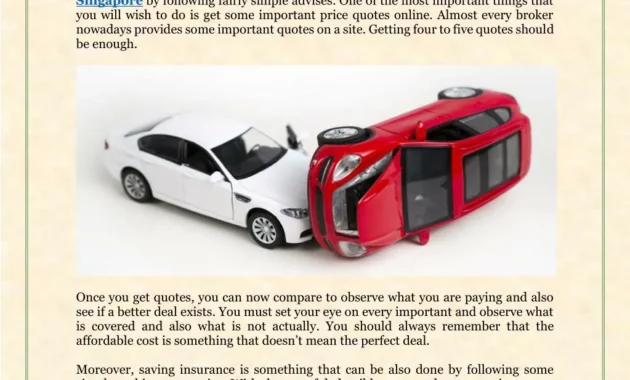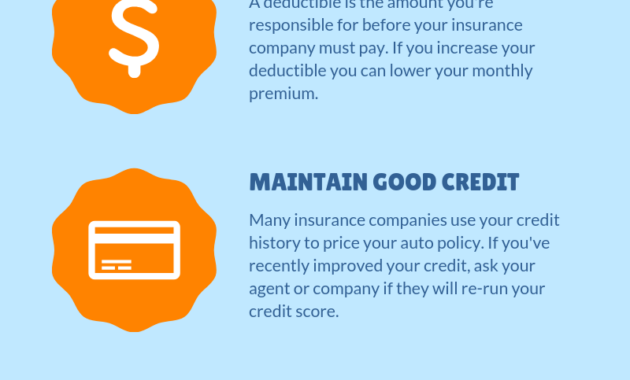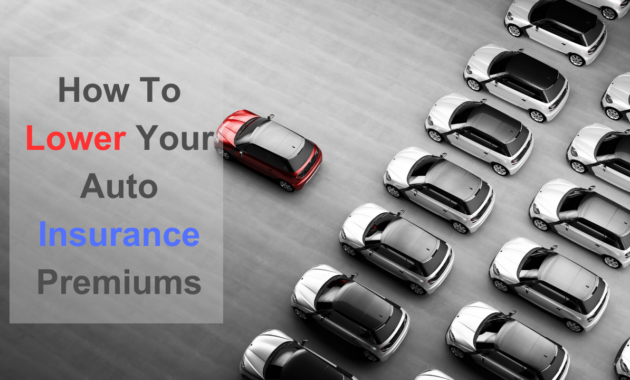How to Lower Auto Insurance Premium
Soaring auto insurance premiums can put a significant dent in your budget, making it essential to explore ways to minimize these costs. Lowering your auto insurance premium doesn’t have to be an insurmountable task; by implementing a few simple strategies, you can potentially reduce your monthly payments without compromising your coverage. Join us as we delve into the intricacies of auto insurance and provide you with actionable tips on how to lower your premium, empowering you to save money and drive with peace of mind.
Increase Your Deductible
One of the most straightforward ways to lower your premium is to increase your deductible. The deductible is the amount you pay out of pocket before your insurance coverage kicks in. By choosing a higher deductible, you’re essentially assuming more risk, and in turn, your insurance company rewards you with a lower premium. However, it’s crucial to strike a balance; while a higher deductible can save you money on your monthly payments, it also means paying more if you need to file a claim. Weigh your options carefully and select a deductible that aligns with your budget and risk tolerance.
Improve Your Driving Record
Insurance companies love safe drivers – it’s as simple as that. Maintaining a clean driving record by avoiding accidents and traffic violations can significantly lower your premium. Every ticket or at-fault accident you accumulate adds points to your driving record, which translates into higher insurance costs. Steer clear of distractions, obey the speed limits, and practice defensive driving techniques to keep your record spotless. Your wallet and your peace of mind will thank you for it!
Take Advantage of Discounts
Insurance companies offer a wide range of discounts to incentivize safe driving and responsible insurance practices. Take advantage of these opportunities to slash your premium. Discounts may be available for:
- Maintaining a certain age (mature drivers often qualify for discounts)
- Installing safety features in your car
- Bundling your auto insurance with other policies (e.g., homeowners or renters insurance)
- Maintaining a good credit score (yes, your credit history can impact your insurance rates)
- Participating in safe driving programs or completing defensive driving courses
Shop Around and Compare Quotes
Don’t settle for the first insurance quote you come across – it pays to shop around and compare premiums from multiple providers. The insurance market is competitive, and by comparing quotes from different companies, you can potentially find the best coverage at the lowest cost. Use online comparison tools or reach out to independent insurance agents to get multiple quotes and compare their rates, discounts, and coverage options. Remember, the cheapest policy isn’t always the best; look for a balance of price, coverage, and customer service.
Drive Less
It’s no secret that the more you drive, the higher your risk of getting into an accident. And guess what? Insurance companies know that too! Reducing your annual mileage can lead to lower insurance premiums. If possible, consider carpooling, taking public transportation, or walking instead of driving. Every mile you don’t drive is a mile that can potentially save you money on insurance.
Maintain a Good Credit Score
As mentioned earlier, your credit score can play a role in determining your insurance rates. Insurance companies often use credit-based insurance scores to assess your financial responsibility and predict your likelihood of filing a claim. Maintaining a good credit score by paying your bills on time, keeping your credit utilization low, and avoiding unnecessary inquiries can help you qualify for lower premiums.
Install Safety Features in Your Car
Insurance companies love cars with safety features – they indicate that you’re a responsible driver who wants to protect yourself and others on the road. Installing safety features such as anti-lock brakes, airbags, lane departure warnings, and adaptive cruise control can not only enhance your safety but also qualify you for discounts on your auto insurance.
Anti-Lock Brakes (ABS)
Anti-lock brakes prevent your wheels from locking up during sudden braking, allowing you to maintain control of your vehicle and avoid skidding. ABS can be especially helpful during slippery road conditions or emergency maneuvers.
Airbags
Airbags inflate rapidly in the event of a collision, providing a cushion between you and the hard interior of your car. They help reduce the risk of serious injuries, such as head trauma and broken bones.
Lane Departure Warnings (LDW)
Lane departure warnings use sensors to detect when your vehicle is drifting out of its lane without signaling. They alert you with visual and audible signals, giving you time to correct your course and avoid potential accidents.
Adaptive Cruise Control
Adaptive cruise control automatically adjusts your speed to maintain a safe following distance from the vehicle in front of you. It can reduce driver fatigue and minimize the risk of rear-end collisions, especially during long road trips.
By installing these safety features in your car, not only are you enhancing your safety and the safety of others on the road, but you’re also making yourself a more attractive candidate for insurance discounts.

